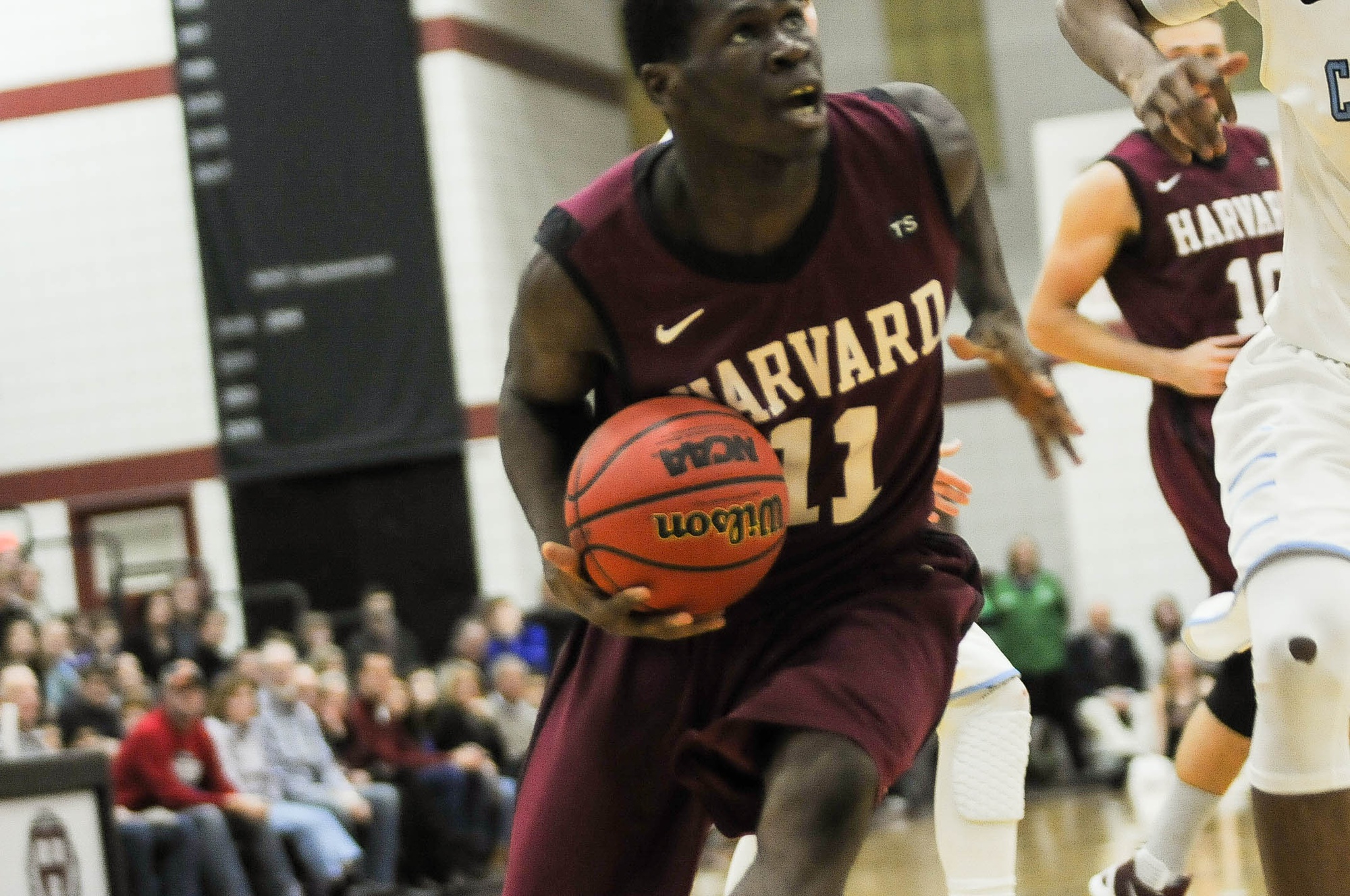
News
Summers Will Not Finish Semester of Teaching as Harvard Investigates Epstein Ties

News
Harvard College Students Report Favoring Divestment from Israel in HUA Survey

News
‘He Should Resign’: Harvard Undergrads Take Hard Line Against Summers Over Epstein Scandal

News
Harvard To Launch New Investigation Into Epstein’s Ties to Summers, Other University Affiliates

News
Harvard Students To Vote on Divestment From Israel in Inaugural HUA Election Survey
Men's Basketball Drops Fourth Straight Ivy Game to Princeton

PRINCETON, N.J.—Freshman Tommy McCarthy, calm and in rhythm, flashed a three-point sign at the Princeton fans. With 13 minutes remaining in the second half, McCarthy’s fourth trey of the game had cut what was a 19-point lead to 10. Harvard, which had come back from 16 down a week ago to briefly take a second half-lead against Cornell, was on an 11-3 run. The unnerved Tigers took a timeout as a raucous crowd at Jadwin Gymnasium fell silent.
It didn’t take long for them to get back on their feet.
After Princeton forward Henry Caruso put the lead at 13 with a three, Harvard missed two of four free throws on the next possession. The teams then engaged in the least balanced of swaps—three straight Princeton treys against three Harvard turnovers—as Princeton pushed the lead to 24.
Princeton’s 13-0 run took just under two minutes and sealed an 83-62 victory that appeared to put the final nail in the coffin for Harvard’s Ivy League hopes. The Tigers (13-5, 3-1 Ivy League) sent Harvard (9-12, 1-4) to its fourth straight Ivy League loss for the first time in nine years.
“I certainly didn’t think that we put forth the best effort that we’ve seen out of our team this season so it was really a tough night,” Harvard coach Tommy Amaker said.
All night, the Crimson missed junior star forward Zena Edosomwan, who sat to nurse a persistent thigh injury suffered last weekend. With captain Evan Cummins—whose 1.6 blocks a game ranks second in the league—sitting the entire second half with strep throat, Princeton drove the paint at will. For the game, Princeton had 38 points in the paint and made 61 percent of its two-pointers.
Sophomore Chris Egi, Harvard’s lone big man for most of the evening, was effective defending Princeton’s centers but could not help quick enough on the Tigers’ shifty wings. While forwards Alec Brennan and Pete Miller combined for just three baskets in 31 minutes, wings Caruso, Steven Cook, and Spencer Weisz had 53 points.
When Princeton missed, however, it typically came up with the ball. Of Princeton’s 33 misses on the day, it rebounded 15. Caruso had five offensive rebounds alone en route to a 19-point, eight-rebound, six-assist night.
Amaker noted that the absence of Edosomwan, who leads the league in total rebound percentage, contributed—but did not excuse—Harvard’s struggles.
“It’s not comfortable or easy for the guards to drive it in there if he’s in there,” Amaker said. “It’s a big void, but you know, everyone has something they are trying to make up for.”
The Tigers’ lone starting wing not to score in double digits—sophomore Amir Bell (four points in 31 minutes)—was instrumental in instigating Princeton’s full-court press. Harvard, who leads the Ivy League in turnovers, found its offense bogged down from the beginning of the contest by its 19 turnovers and 11 missed free throws.
Bell, Weisz, and freshman Devin Cannady led an active Princeton press that put Harvard on its heels early and often. While the Tigers just had seven steals on the game, its pressure prevented Harvard from getting into its offensive sets and took reserves Patrick Steeves and Corbin Miller (six turnovers, eight points) out of the game.
In the first half, its pressure turned a 4-3 deficit into a 19-6 lead in just five minutes as Jadwin Gymnasium roared early and often. After the Crimson’s first set of three consecutive giveaways, the Tigers pushed the lead to 19. It entered the break up 16, making 48 percent of its shots and 46 percent of its threes in the first period.
“We definitely got ourselves into a hole,” McCarthy, who led the team with 16 points, said. “It’s always tough to get back because you have to exert so much energy.”
For the game, Harvard pulled off an improbable feat that has become customary: shooting better from the field than the foul line. The Crimson made 48 percent of its field goals against just 45 percent of its foul attempts, which dragged down an offense that otherwise shot 58 percent in the second half. Before making four of its final six free throws, Harvard hit only five of its first 10, including an airball from Cummins.
–Staff writer David Freed can be reached at david.freed@thecrimson.com.
Want to keep up with breaking news? Subscribe to our email newsletter.
